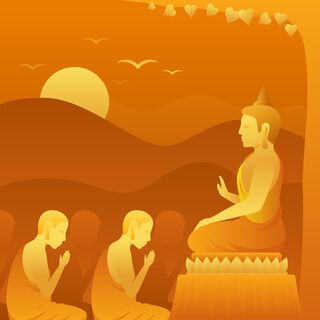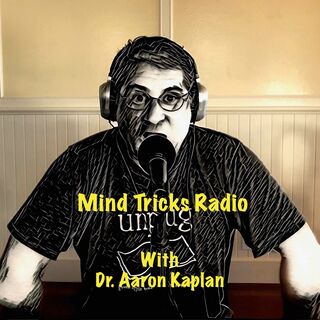Psychology
When the Buddha Gave a Psychology Lesson
The Buddha gave a lecture that laid the groundwork for modern psychologists.
Posted March 16, 2022 Reviewed by Lybi Ma

About 25 years ago I had the good fortune to drive one of the world's preeminent Buddhist teachers, Lama Ole Nydahl, from Kennedy Airport to the Diamond Way Buddhism Center in Manhattan. At one point on the trip, he asked me what I was taking up in school, and when I told him I was in training to be a psychologist he said: "You know, Buddhism begins where psychology ends."
To that point, I hadn't thought much about the relationship between psychology and Buddhism, though the connection seems obvious today, a quarter-century later. When we reflect on Buddhism's contributions to modern psychology, we're likely to think about the practice of mindfulness as an intervention for all types of psychological symptoms, especially anxiety, and how it's the cornerstone of Dialectical Behavioral Therapy (DBT). Less emphasized in psychological treatment, however, are the actual teachings of Gautama Buddha. Most people, including non-Buddhists, are familiar with the Buddha's teachings on the Four Noble Truths and the Eightfold Path. But the lesson that has the most psychological wisdom for people today is what's known as the Kalama Sutta.
During the Buddha's life, the Kalama people of the village Kesaputta were often visited by monks of various sects, with each of them elevating their own doctrine and condemning any opposing doctrines.
Does this type of sectarian tribalism remind you of anything today?
When the Kalamas were finally visited by Gautama Buddha, they asked him to help them determine which teachings reflected the truth and which were false. What has come to be known as the Kalama Sutta was the Buddha's response:
- Do not simply believe what you hear, just because you have heard it for a long time.
- Do not follow tradition blindly, merely because it has been practiced in that way for many generations.
- Do not be quick to listen to rumors.
- Do not confirm anything just because it agrees with your scriptures.
- Do not foolishly make assumptions.
- Do not abruptly draw conclusions by what you see and hear.
- Do not be fooled by outward appearances.
- Do not hold tightly to any view or idea just because you are comfortable with it.
- Do not accept as fact anything that you yourself find to be logical.
- Do not be convinced of anything out of respect or deference to your spiritual teachers.
- You should go beyond opinion and belief. You can rightly reject anything which, when accepted, practiced, and perfected, leads to more aversion, more craving, and more delusion. They are not beneficial and should be avoided. Conversely, you can rightly accept anything which, when accepted and practiced, leads to unconditional love, contentment, and wisdom. These things allow you time and space to develop a happy and peaceful mind. This should be your criteria on what is and what is not the Truth; on what should be and what should not be the spiritual practice (Note: the above text comes from an unofficial publication of the Chuang Yen Buddhist monastery).
It is not a stretch to infer from the Kalama Sutta that the Buddha was advocating that his students regularly engage in some form of reality testing (or what William James referred to as "radical empiricism"). Reality testing is a technique that was formally devised by Sigmund Freud (1911) and then later adopted by adherents of cognitive behavioral therapy (CBT). Though all of the statements of the Kalama Sutta can be thought of as advocating for reality testing, this is especially true of the statement "Do not hold tightly to any view or idea just because you are comfortable with it."
At other points in the Kalama Sutta, the Buddha makes recommendations to avoid cognitive distortions and logical fallacies. "Do not foolishly make assumptions." "Do not be quick to listen to rumors." "Do not abruptly draw conclusions." These are calls to avoid, what CBT therapists might label "overgeneralization" and "jumping to conclusions."

Furthermore, when the Buddha says: "Do not confirm anything just because it agrees with your scriptures;" "Do not hold tightly to any view or idea just because you are comfortable with it;" and "Do not accept as fact anything that you yourself find to be logical," these are warnings against, what social psychologists call, the "confirmation bias" or "cherry-picking," which is where people only seek examples that support their preexisting beliefs while ignoring examples that conflict with their beliefs.
Finally, Gautama Buddha tells the people of Kalama: "Do not be convinced of anything [simply] out of respect or deference to your spiritual teachers." This last recommendation is a call to avoid, what social psychologists and philosophers would label, the "argument from authority." In this last statement, Gautama Buddha was trying to help the Kalamas avoid holding their teachers and other authority figures in such high regard that they would believe anything they said without reality testing. The Buddha even wished that his students would apply this lesson to his own teachings, and not take anything that even he said without testing it first.
The Buddha's Kalama Sutta is as valid now as it ever was. The next time you turn on any cable news channel, note how many times the pundits indulge in the cognitive distortions and logical fallacies that the Buddha warned against—overgeneralization, jumping to conclusions, and the confirmation bias, as well as the argument from authority and its inverse, the ad hominem fallacy. Not to be outdone by cable news pundits, our culture is awash in politicians, conspiracy theorists, advertisers, social media influencers, and even religious leaders (Buddhists included) that use these cognitive distortions and logical fallacies with tactical precision.
Ignoring the lessons of the Kalama Sutta makes our efforts to find truth an exercise in futility. It's as if we want to drive to the land of truth, but the map we're using to get us there is distorted and warped. If your goal is to travel to the land of truth as efficiently as possible, a choice destination for both psychologists and Buddhists, you would be well-served by using the Kalama Sutta as your GPS.
-----

To hear my discussion on this topic with Dr. Aaron Kaplan on his podcast, Mind Tricks Radio, click here.
References
For more on the topic of cognitive distortions and logical fallacies, check out "Are You Intellectually Honest?"
Freud, S. (1911). Formulations regarding the two principles in mental functioning. Collected papers, 4, 13-21.




